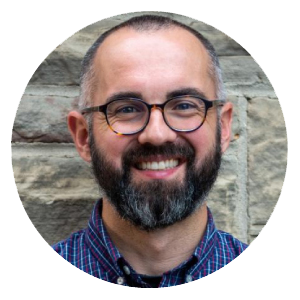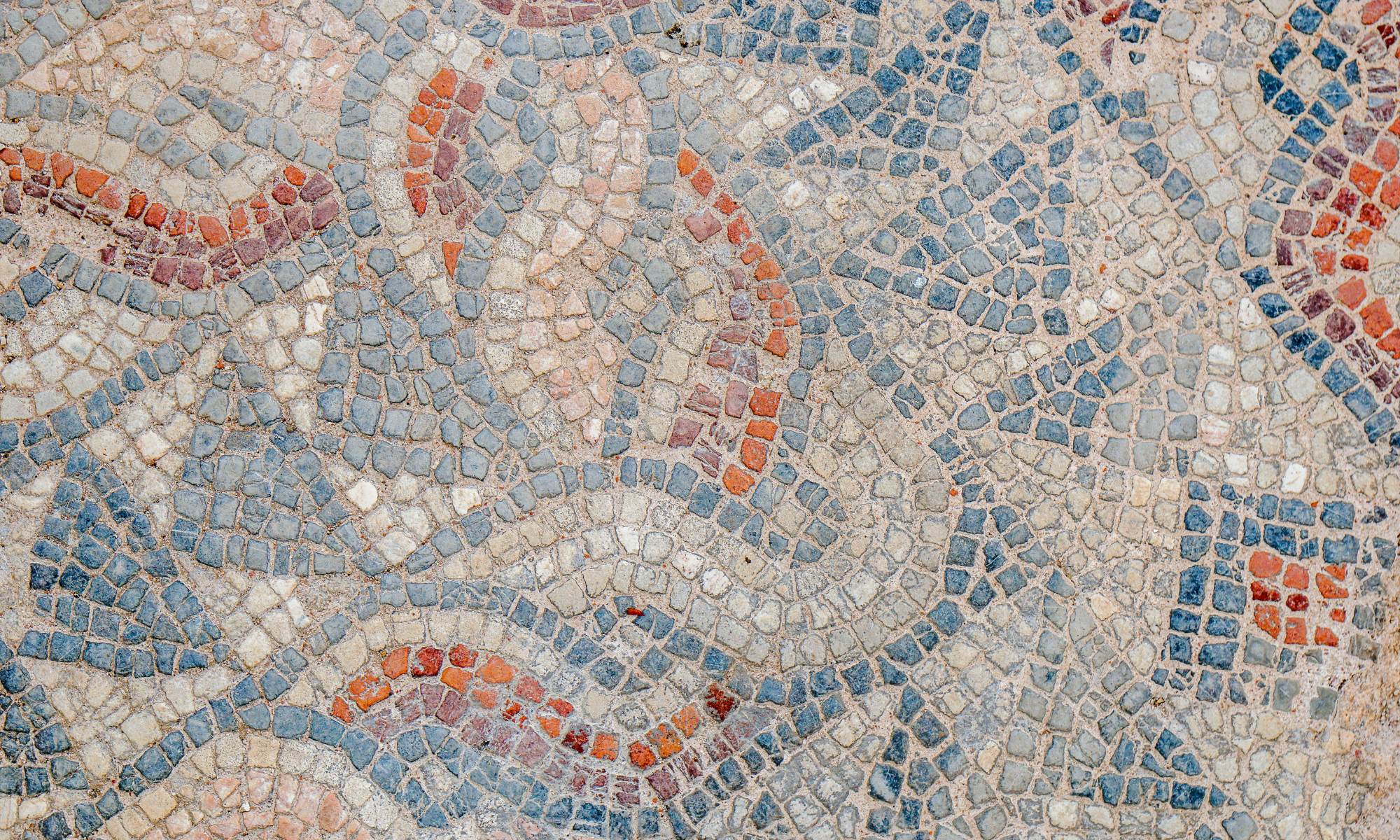By Chris Dow
For Christ himself is our peace; in his flesh he has made both groups into one and has broken down the dividing wall, that is, the hostility between us. (Eph. 2:14)
I recently returned from the synod of the Diocese of the Arctic, where I am still canonically resident despite having taken up a new position at Wycliffe College. The reason I maintain that affiliation is because I wish to stay connected to something extraordinary. Arctic Anglicans offer a model of a Holy Spirit-anointed church—one that has achieved a remarkable degree of ethnic and linguistic integration between diverse peoples precisely and only because it is centred on the Word-made-flesh and enlivened by his reconciling Spirit.
All of this was on full display at the recent synod. The vast majority of clergy and lay delegates were Inuit. Other synod members who now call the north home were born and raised in places as diverse as Australia, India, Newfoundland, the Philippines, the United States, and Zimbabwe. But the synod made no formal distinction between the categories of “Inuit” and “non-Inuit,” or “indigenous” and “settler.” Neither was there any mention of “anti-racism,” “de-colonization,” or “inclusiveness.” Such words are unnecessary when the goals they point towards are simply lived out in a place where everyone claims the same higher allegiance.
Here is what that looks like in practice: the convening circular was published in English and Inuktitut. Synod proceedings were conducted in both languages with the help of simultaneous translation technology and skilled interpreters. The same bilingual delivery was also provided for training sessions on biblical preaching, leading family baptism preparation, healing ministries, and a new Sunday school curriculum. The Canadian Bible Society facilitated a feedback session on the Eastern Arctic Inuktitut Bible (EAIB) to hear how particular translation decisions were being received in parishes. Most of the synod was dedicated to these various edifying workshops, rather than to formal business and legislation, because enabling and equipping members to fulfill the Great Commission is the highest priority for Arctic Anglicans.
Daily worship services were vibrant and heart-felt. Most prayers and songs were Inuktitut-led. Whenever possible, the words were displayed on a screen in both languages, but when they weren’t, the rest of us either prayed silently, tried to manage the Inuktitut, or joined cacophonously in the language of our own hearts. A highlight for me was reuniting with members of the St. Jude’s cathedral praise band to sing Jesusip tasiuqpaanga, “He Leadeth Me.” (Needless to say, I sang backing vocals and my Inuit friends sang lead.) I was disappointed to miss the traditional feast on the Sunday, having arrived a day late, but another highlight was hearing the summer intern from Bristol, UK describe her first taste of maktaaq—raw whale meat.
In short, the 17th Synod of the Diocese of the Arctic was equal parts banquet, business, commissioning, elections, episcopal consecration, family reunion, and revival. It may not have been perfect, but as much as is possible for the pilgrim church here on earth, this joyous synod offered a foretaste of Isaiah’s heavenly feast (Isa. 25:6-9), a glimpse of Revelation’s great multitude (Rev. 7:9), and an echo of the Babel-redeeming Day of Pentecost (Acts 2:1-11)—all with a distinctly Arctic flavour.
This is what a Christian synod ought to be. The Greek word synodos literally means something like “coming together along the way” or “meeting on the journey”—the word itself being a coming together of syn (“with” or “together”) and odos (“way” or “path”). What a blessed thought it is to have Jesus—the pioneer and perfecter of our faith (Heb. 12:2)—join us and lead us on our earthly pilgrimage. When he returns in glory and all things are put into subjection under his feet, his followers from every nation, tribe, and tongue will be reunited in the new Jerusalem, where God shall be all in all (1 Cor. 15:28). This is his plan for the fullness of time, to gather up all things in Christ, things in heaven and things on earth (Eph 1:10).
General Synod
That brings me to the General Synod of The Anglican Church of Canada. I was a clerical delegate to General Synod 2016 in Toronto. That meeting—like the ones after it in 2019 and 2023—is unhappily remembered by many for rancor and discord over certain controversial matters (not to mention its technical difficulties with the electronic voting system).
But trying though it was to endure, my memories of GS2016 are not altogether negative. I met some wonderful people from the four corners of the country; and one thing I will say for the organization of the event is that simultaneous translation was provided for various indigenous languages. Doubtless that came with a significant expense and some logistical hurdles, but it allowed for unilingual indigenous elders to understand what was being discussed and to participate as they felt moved. Moreover, it empowered bilingual indigenous delegates to choose to speak their mother tongue if they were more comfortable doing so. This served as a reminder to everyone that such languages are still spoken throughout the Anglican Church of Canada.
Regrettably, provision for simultaneous translation was eliminated at GS2023. If that was a financial cost-saving measure, I would submit that there may be a much higher price to be paid for sidelining indigenous elders and tongues from the councils of the church and enforcing the exclusive hegemony of English language and culture.
That last sentence is “intentionally provocative.” I thus offer it in the same vein as the seven original hypotheses (now “pathways”) put forward by the Primate’s Commission on Proclaiming the Gospel in the 21st Century. This commission considered what structural and procedural changes should be made to a church that has seen “precipitous decline” across all metrics. Their final report has been published in a document entitled, Creating Pathways for the Transformational Change of the General Synod.
There is much to commend in this report, including a quite beautiful opening reflection on the Road to Emmaus and a very honest discussion of our dire straits. Surely the most searching and honest acknowledgment is found in the fifth pathway:
Amongst Indigenous Anglicans there is distrust towards the Anglican Church of Canada; specifically with Council of General Synod, Senior Representatives of the Office of General Synod; and processes at the Meeting of General Synod. With regards to the Meeting of General Synod a sense of hurt seems evident as well.[1]
I am not an indigenous person, but I share a similar distrust. My reasons for this are personal and experiential, but also in this case, textual. For I am afraid that within Creating Pathways there may be found a fatal, fundamental flaw. Although this report uses the properly synodical and Emmaus-inspired image of “walking together” (as well as the Anglican Communion language of “mutual interdependence”), it also bifurcates and divides us into two separate and distinct quasi-racial entities: an “Indigenous Church” and an “Historic Settler Church.”[2]
To return to the passage from Ephesians I quoted at the outset, much of the New Testament is about the practical struggles and labour pains of integrating Jewish and Gentile Christians together in one body. Nowhere does Paul speak of them as two separate churches, therefore I find it hard to see how the Apostle could endorse this proposed “pathway.” For he teaches that there is “neither Jew nor Greek, circumcised and uncircumcised, barbarian, Scythian, slave or free, but Christ is all and in all” (Col. 3:11). Thus, I leave you with another intentionally provocative inference: de jure segregation is a strange, lamentable, and self-defeating solution to racism.
I certainly do not mean to undermine or criticize the good work that has been done by Sacred Circle and the Anglican Council of Indigenous Peoples (ACIP) toward the goal of “self-determination” for indigenous Anglicans. That movement’s foundational Covenant of 1994 spoke of establishing a “new, self-determining community within The Anglican Church of Canada.”[3] That language is notably different from the divided categories of “Creating Pathways,” as it maintains the notion of a single church. The impetus for this movement was the regrettable reality that, for indigenous Anglicans, “the National church’s canons, structures and policies have not always responded to our needs nor heard our voice.”[4] I would have wished that the National church could have been altered accordingly to rectify this problem. So, while I yield to the desire of indigenous Anglicans for self-determination, I register my selfish complaint that any bifurcation into two churches would leave the rest of us poorer. The Diocese of the Arctic provides an alternate model of a single church in which all are enriched by the fact that Inuit culture, language, piety and ways of reading Scripture are given pride of place.
Conclusion
In conclusion, I would like to offer a three-fold prayer, plea and encouragement to all members and organizers of the 44th Session of General Synod gathering in London this summer:
-
- I hope and expect that indigenous members will once again speak to the floor in their mother tongues; and I am glad to hear that provision will be made to allow such speakers to go longer than the standard time limit. But sadly, few other people in the room will understand unless the speaker defers to the majority and repeats their words in English, which would give them even less time to make their point. Perhaps it is not too late to provide for at least some measure of simultaneous interpretation; and if so, I hope that English speakers will use the technology to understand the indigenous languages, and not just the other way around.
Whether or not you are interested by indigenous languages, we should all have an interest in supporting their use, because the relatively few places where the ACoC is growing and vibrant tend to be those where such tongues are spoken. If there can be no simultaneous interpretation, I pray that each member of General Synod will be patient and respectful when these members are speaking. Though you may not understand the language, listen to what the Holy Spirit is saying to your heart at that moment. For only God the Holy Spirit—our Advocate, Comforter and Guide—can bring restored communication and understanding. - My time in the Arctic taught me that when first things are kept first, the Holy Ghost will take care of the rest. By that I mean this: when we gather to worship the triune God in spirit and in truth (John 4:23), when we hear the Word of God attentively and submissively, and when we stand ready, willing and unashamed to be equipped for the Great Commission, we will find a surprising unity across ethnic, cultural and linguistic lines. We will experience an unspeakable reconciling love where once there was fear and resentment arising from past harm; and we will become friends who love one another through the One who first loved us (John 15:14; 1 John 4:19).
By contrast, when our corporate worship is unrecognizably Anglican or dubiously Christian, and when matters of minor importance fill our agendas and time together, things fall apart, as there is nothing to hold the centre. We “grieve the Holy Spirit of God, by whom we were sealed for the day of redemption” and our gatherings can be conflictual. Instead, the Apostle would remind us to be “kind to one another, tender-hearted, graciously forgiving one another, just as God in Christ has graciously forgiven you” (Eph. 4:30-32); and “may the Lord who is faithful strengthen and guard you from the evil one” (2 Thess. 3:3).
Regardless of the matter being debated at any given time, I encourage new members not to be afraid to speak to the floor, to ask questions for clarification, to propose amendments, and to submit their own resolutions on subjects about which they are passionate if they prayerfully sense that the Spirit has put it on their heart. - Creating Pathways is careful to note that it proposes changes to the “organizational structure” of General Synod and not its “meetings.”[5] That is a very fine distinction and will be lost on many, but in any case, the gathering and time together is what really matters. I hope you will join me in praying that this summer’s meeting of General Synod will be harmonious and that its members will enjoy their time together.
Finally, I would note that the “pathways” are not ours to create. For there is but one path, blazed of old and found only in the Scriptures—an eternal gospel proclaimed to those who inhabit the earth, and to every nation, tribe, tongue and people (Rev. 14:6). This is the greatest story ever told, and we, though many, are now part of it by adoption and grace.
As we celebrate the ascension of Jesus, the Son of Adam, to the Ancient of Days (Dan. 7:14), and await a fresh outpouring of his Spirit (Luke 24:50-53; Acts 1:9-26), may the grace of the Lord Jesus be with us all; and let us pray that Christ and his virtues of faith, hope and love would come quickly (Rev. 22:20-21)—even to the General Synod.
- I hope and expect that indigenous members will once again speak to the floor in their mother tongues; and I am glad to hear that provision will be made to allow such speakers to go longer than the standard time limit. But sadly, few other people in the room will understand unless the speaker defers to the majority and repeats their words in English, which would give them even less time to make their point. Perhaps it is not too late to provide for at least some measure of simultaneous interpretation; and if so, I hope that English speakers will use the technology to understand the indigenous languages, and not just the other way around.
————————————————–
[1] Creating Pathways, p. 32.
[2] Creating Pathways, p. 4, 32.
[3] A Covenant and our Journey of Spiritual Renewal – The Anglican Church of Canada
[4] A Covenant and our Journey of Spiritual Renewal – The Anglican Church of Canada
[5] Creating Pathways, p. 6.

The Rev. Chris Dow has served in the dioceses of Saskatchewan and Toronto and as Dean of the Arctic, and now serves as Chaplain at Wycliffe College in Toronto.

